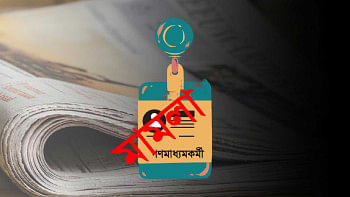A Prime Minister and his house
PROFESSOR Nurul Islam, Deputy Chairman of the first Planning Commission and an economist of international repute, was a close associate of Bangabandhu Sheikh Mujibur Rahman in the realm of economic matters in both pre and post independence periods.
In his book Making of a Nation Bangladesh: An Economist's Tale, Professor Islam provides, inter alia, a penetrating presentation of his personal conversations with the greatest Bangalee of all times.
Down the author's memory lane, as revealed in the aforementioned book, we come across a story about a house called "Prime Minister's house." The Works Ministry at the time developed a project for the construction of Gonobhaban i.e. a new office cum residence for the prime minister and sent it for the approval of the Planning Commission. Possibly to deter any deviations from the original plan, the Ministry also conveyed to the Commission that the project document has already been seen and agreed to by Sheikh Mujib.
But a closer look at the project revealed that, in preparing the design and quality of construction, the Ministry was overzealous possibly to please the prime minister. On receipt, the Planning Commission suggested a reexamination of the project and its construction costs. But the Ministry was very surprised at this suggestion and informed Sheikh Mujib, no doubt with some embellishments, about the audacious behaviour of the 'professors' in the Commission.
However, at that time, the decision evoked no reaction from the then Prime Minister Sheikh Mujibur Rahman himself or from his office. The reticence is quite understandable. While the government was publicly committed to a policy of austerity and the Commission was expected to enforce it in respect of development projects, Sheikh Mujib decided that he could not have asked the Commission to do otherwise in his own case. He did not want to deviate from the discipline that the Planning Commission was trying to impose on public expenditure.
The prime minister forgave the "professors" for that moment but, possibly, did not forget their interventions. This subject came up later in a different context when Sheikh Mujib and his delegates were taken to Biroini Island where Marshall Tito of former Yugoslavia had his villa. The villa belonged to the old monarchy and was inherited and renovated by the socialist government of Tito. "It was very luxurious in the tradition of palaces and villas of the European royalty of the 19th and early 20th centuries. We were all impressed to see how the living styles of leaders in the Socialist countries contrasted so starkly with their espousal of the cause or the rights of the proletariat!" writes Professor Islam.
Later on, in one of his relaxed moments Sheikh Mujib, just in jest, reminded Professor Islam of the great pomp and luxury in which the famous Socialist revolutionary Marshall Tito lived. Whereas, the leader lamented, "the Prime Minister of Bangladesh was being denied by the Planning Commission a proposed accommodation for his residence and office which was very modest, not even distantly comparable to this villa or resort."
In reply, and also in jest, Professor Islam argued that Tito secured these luxurious villas free from the disposed royals and feudals. "We were very unlucky in this respect. The only palace of any sort that we had inherited was the palace of Maharaja of Santosh." The conversation concluded there.
Till his brutal assassination in 1975, Bangabandhu lived in the house where he had been living for years -- an accommodation akin to an average resident of Dhanmondi residential area. He sacrificed his personal pomp and luxury for the sake of the people he loved so much. He maintained that discipline of public expenditure, on the heels of declared austerity, should be the key consideration for a prime minister, not the suggestions of sycophants around, constant barrage of flattery and exaggerated eulogy.
"As a veteran in human relationships, he was often quick to discern the difference between sycophancy and genuine appreciation. He seldom expressed displeasure at my critical comments and protests," reports Professor Islam.
The moral of this short story is very simple. A leader, and specifically the prime minister, should lead the examples of plain living and high thinking, of shared austerity espoused for the people, and of accommodative attitude to the critics.

 For all latest news, follow The Daily Star's Google News channel.
For all latest news, follow The Daily Star's Google News channel. 



Comments